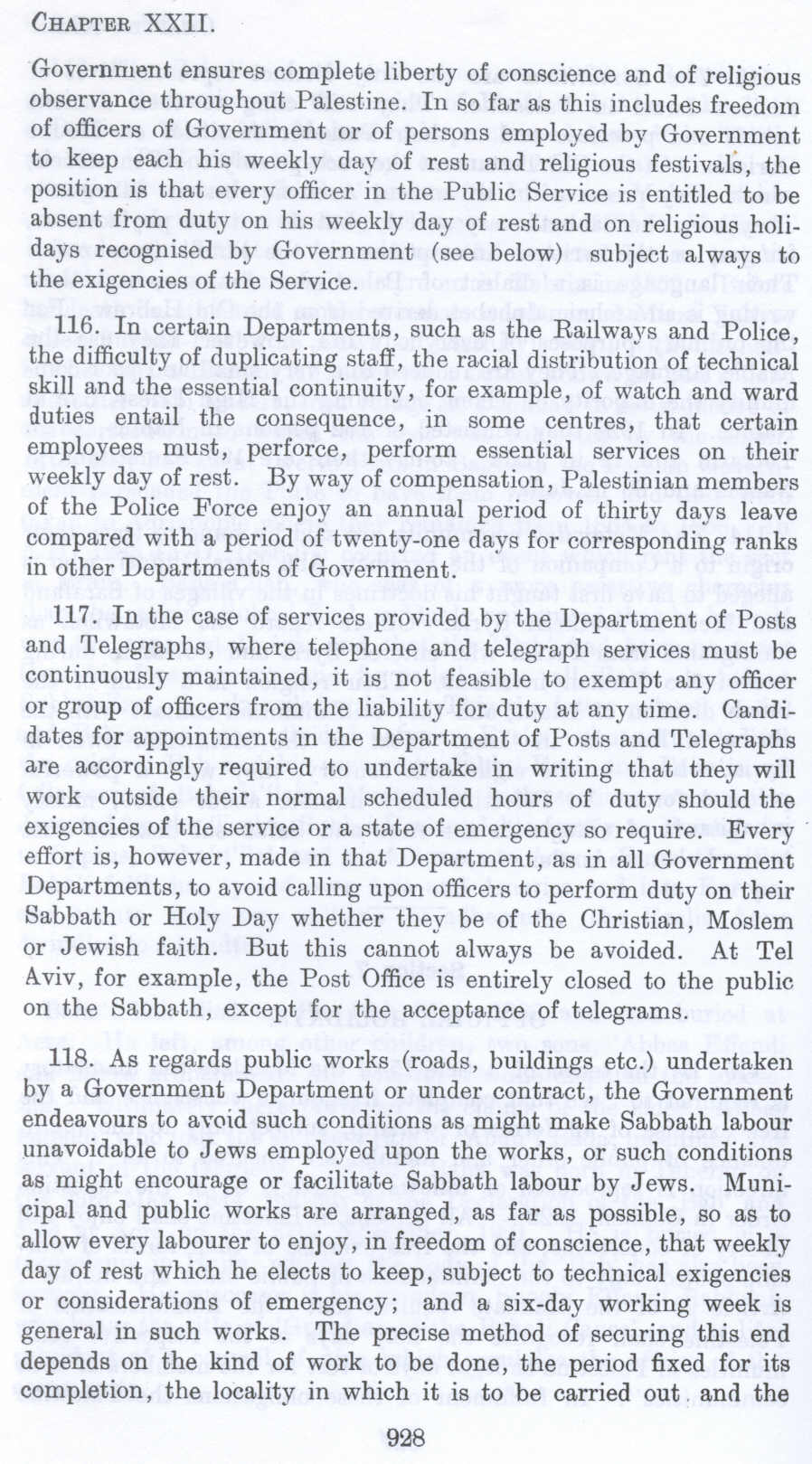| Prev | Next |  |
| Prev | Next |
| PalestineRemembered | About Us | Oral History | العربية | |
| Pictures | Zionist FAQs | Haavara | Maps | |
| Search |
| Camps |
| Districts |
| Acre |
| Baysan |
| Beersheba |
| Bethlehem |
| Gaza |
| Haifa |
| Hebron |
| Jaffa |
| Jericho |
| Jerusalem |
| Jinin |
| Nablus |
| Nazareth |
| Ramallah |
| al-Ramla |
| Safad |
| Tiberias |
| Tulkarm |
| Donate |
| Contact |
| Profile |
| Videos |
British Mandate: A Survey of Palestine: Volume II - Page 928 |
Disclaimer
The above documents, article, interviews, movies, podcasts, or stories reflects solely the research and opinions of its authors. PalestineRemembered.com makes its best effort to validate its contents.


Post Your Comment
*It should be NOTED that your email address won't be shared, and all communications between members will be routed via the website's mail server.
Government ensures complete liberty of conscience and of religious observance throughout Palestine. In so far as this includes freedom of officers of Government or of persons employed by Government to keep each his weekly day of rest and religious festivals, the position is that every officer in the Public Service is entitled to be absent from duty on his weekly day of rest and on religious holidays recognised by Government (see below) subject always to the exigencies of the Service.
116. In certain Departments, such as the Railways and Police, the difficulty of duplicating staff, the racial distribution of technical skill and the essential continuity, for example, of watch and ward duties entail the consequence, in some centres, that certain employees must, perforce, perform essential services on their weekly day of rest. By way of compensation, Palestinian members of the Police Force enjoy an annual period of thirty days leave compared with a period of twenty-one days for corresponding ranks in other Departments of Government.
117. In the case of services provided by the Department of Posts and Telegraphs, where telephone and telegraph services must be continuously maintained, it is not feasible to exempt any officer or group of officers from the liability for duty at any time. Candidates for appointments in the Department of Posts and Telegraphs are accordingly required to undertake in writing that they will work outside their normal scheduled hours of duty should the exigencies of the service or a state of emergency so require. Every • effort is, however, made in that Department, as in all Government Departments, to avoid calling upon officers to perform duty on their Sabbath or Holy Day whether they be of the Christian, Moslem or Jewish faith. But this cannot always be avoided. At Tel Aviv, for example, the Post Office is entirely closed to the public on the Sabbath, except for the acceptance of telegrams.
118. As regards public works (roads, buildings etc.) undertaken by a Government Department or under contract, the Government endeavours to a-void such conditions as might make Sabbath labour unavoidable to Jews employed upon the works, or such conditions as might encourage or facilitate Sabbath labour by Jews. Municipal and public works are arranged, as far as possible, so as to allow every labourer to enjoy, in freedom of conscience, that weekly day of rest which be elects to keep, subject to technical exigencies or considerations of emergency; and a six-day working week is general in such works. The precise method of securing this end depends on the kind of work to be done, the period fixed for its completion, the locality in which it is to be carried out. and the
928